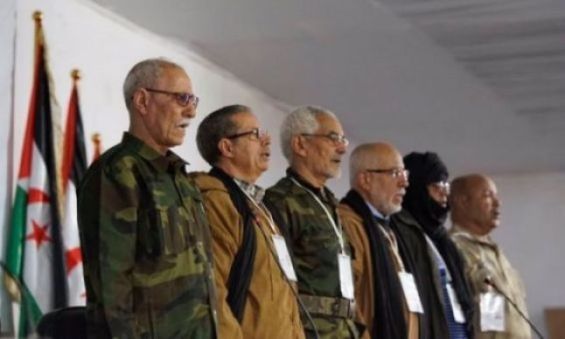In the late seventies and early eighties, the number of countries that recognized the self-proclaimed Polisario «republic» in 1976 exceeded eighty, which at that time allowed it to gain membership in the African Union.
During that period, the separatist movement benefited from active Algerian diplomacy and the dynamics of the Cold War, which saw Algeria aligned with the Eastern Bloc, led by the Soviet Union, against the Western Bloc, led by the United States.
However, with the fall of the Berlin Wall and the collapse of the Soviet Union, things gradually began to favor Morocco, and many countries where the regime changed from left to right started reconsidering their relations with the Polisario Front.
The number of countries that have withdrawn their recognition of the «Polisario Republic» now exceeds fifty, leaving only a few nations in Africa and Latin America maintaining ties with the separatist movement.
Latin America is no longer a stronghold
In the late nineties and early third millennium, Latin America witnessed a leftist wave from which the separatist Front benefited, finding strong support from many Latin countries within international organizations and forums. However, with the decline of the left and the rise of right-wing parties, the situation changed, and the separatists no longer had the same favor.
Currently, only a few countries recognize the Polisario, namely: Mexico, Belize, Uruguay, Venezuela, Cuba, Nicaragua, Trinidad and Tobago and Bolivia.
A few days ago, Morocco continued to achieve diplomatic gains in Latin America, and Panama, which was the first country in the region to recognize the «Sahrawi Republic» in June 1978, joined the list of countries that decided to suspend their relations with the separatist front and instead «support the efforts of the Secretary-General and the international community, within the framework of the United Nations, to reach a peaceful, just, and lasting solution acceptable to the parties».
Before that, on October 22, 2024, Ecuador took the same step as Panama by withdrawing its recognition of the «SADR». A day earlier, Brazilian President Luiz Inácio Lula announced his support for the autonomy plan proposed by Morocco for Western Sahara.
In September 2023, the Peruvian Ministry of Foreign Affairs announced the withdrawal of recognition of the «Sahrawi Arab Republic» and the severance of all relations with it.
More than two years earlier, the Polisario had received unpleasant news when both Barbados and El Salvador announced the freezing of their relations with it.
Ten days ago, the Senate in Paraguay urged the government to support the autonomy initiative for the Sahara proposed by Morocco in 2007. The upper chamber considered the Moroccan initiative «a basis for reaching a peaceful, just, and lasting solution that satisfies all parties, within the framework of respecting the sovereignty and territorial integrity of the Kingdom of Morocco».
In December 2022, the Senate in Uruguay decided to cancel the «Friendship Committee with the Polisario Front», and the rapprochement between Morocco and this country indicates the possibility of freezing its relations with the Polisario.
Absence in Asia and presence in Southern Africa
Like the European continent, where none of its countries maintain relations with the Polisario, the separatists have not been able to promote their «cause» in the Asian continent, and the major Asian countries have not recognized their «republic» except for India, which recognized it in 1985 before withdrawing its recognition in 2000.
Currently, only four Asian countries recognize the Polisario Republic:Vietnam, Laos, North Korea, and East Timor, which became an independent state from Indonesia in 2002 after a self-determination referendum.
In the African continent, the Polisario has more allies compared to other continents, but despite this, many African countries have previously withdrawn their recognition of the «Sahrawi Republic».
Significant African countries, mainly Algeria, Mauritania, Mali, South Africa, Angola, Ethiopia, Botswana, Kenya, Mozambique, Rwanda, Nigeria, Tanzania, Uganda, and Zimbabwe, still recognize it.
It is noteworthy that since 2011, no country has recognized the «Polisario Republic», and it seems that the process of withdrawing recognition will continue in the future, as Morocco has managed to penetrate the front's strongholds in Southern Africa.
Europe steps out of the gray area
Until recently, European countries preferred to maintain a neutral stance, expressing support for the United Nations to find a solution that guarantees the «right to self-determination for the Sahrawi people». However, the balance has clearly shifted in favor of Morocco, with at least 19 European Union countries officially supporting Moroccan sovereignty over the Sahara or the autonomy plan proposed by Rabat. Hungary was the latest of these countries, deciding last Wednesday to support the Moroccan autonomy proposal in the Sahara.
Before that, France, a permanent member of the UN Security Council, recognized Moroccan sovereignty over the Sahara, while Spain, the former colonial power of the Sahara, after a long period of hesitation, decided to support the autonomy proposal as the only solution to the Sahara conflict.
With Donald Trump's return to power in the United States, a new chapter for Morocco is on the horizon, as other countries are expected to follow in Washington's footsteps and support Moroccan sovereignty over the Sahara.





 chargement...
chargement...













